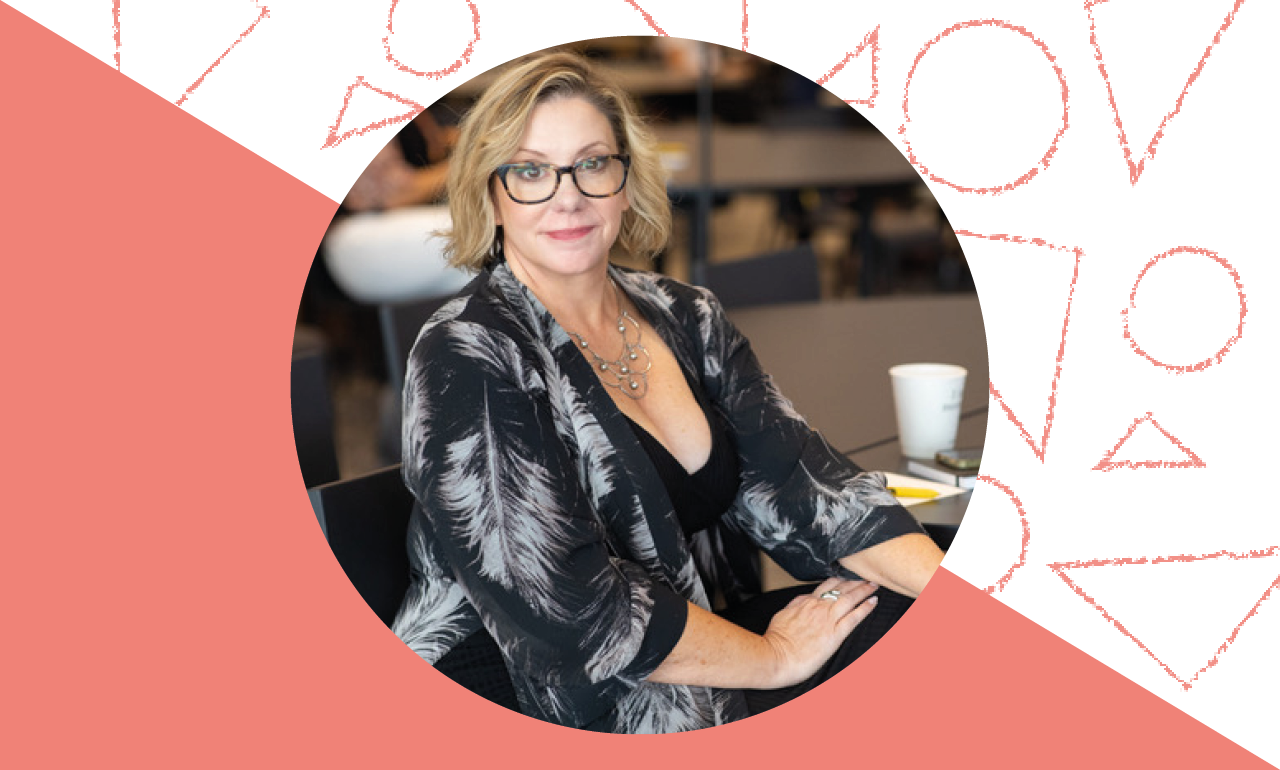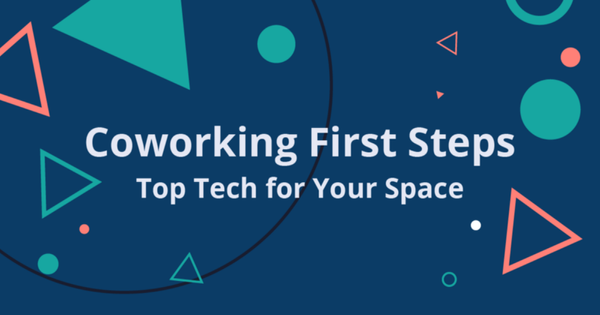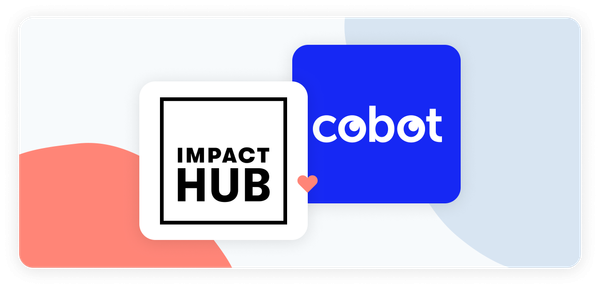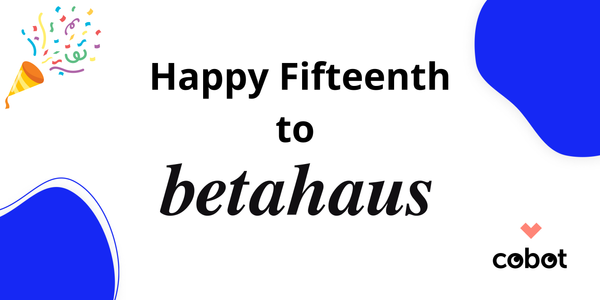We spoke with Liz Elam, founder of the largest coworking conference in the world: The Global Coworking Unconference Conference (GCUC). This article is an abridged version of our discussion.
I really appreciate you taking the time to meet with me. I know you’ve probably been asked this many times before, but could you tell me about GCUC and how you first got involved?
What happened was in 2011, a now-defunct company called Loose Cubes had a half-day unconference in Austin, Texas, right before South by Southwest. They stopped by Link Coworking, which was my coworking brand in Austin, Texas, and they were like, “Hey, we’re doing this thing.” I immediately started helping them and I was completely nerded out by it. I went and met these people from all over the world I had been stalking for months, if not years. And I was just nerded out and sitting in the audience, watching the people on stage. And I was thinking, you know, who’s going to have a lot of influence and power? The person that picks the people up on stage.
I was like, you know what? I’d like to be that person. And then that summer I got a phone call: “Hey, we don’t wanna do this, but you seem super into it. Do you wanna take it over?” And I was like: hell yeah, I wanna take it over! Knowing that coworking would eventually be a global phenomenon, I rebranded it. It was called The Coworking Unconference. I called it the Global Coworking Unconference Conference. And then a few years back, I changed it to the Global Coworking Unconference Community because we have a community now.
That’s interesting. I actually didn’t know that, the rebranding story. That’s really clever. Did you have any background in event organization?
Zero. I never wanted to be in the event industry. Quite honestly, it’s incredibly hard and it’s really hard to make money. It’s a ton of work. It’s a ton of stress. But, in my prior career, I’d worked for Dell and I’d been to a lot of events that I wasn’t impressed with. I wanted to put on something different and that’s what GCUC is. I don’t go to other events and like try to mimic them. I just do what I think we need and what people tell us they want. And somehow, GCUC is different and better because of that.
Absolutely. GCUC has become such a resource for the community. It’s a force for expanding what people know about coworking. It’s been an ambassador for the brand, but it’s also really worked for the people who attend and the people who are already investing in coworking. I’m curious if you have any advice or stories you’ve gotten from speakers or from participants throughout the years that have really stuck with you.
Oh, wow. I mean, so many Sam, I don’t even know where to start. I think the thing that makes me the happiest is when I find out that people either met a business partner at GCUC or got funding because of GCUC or expanded their brand because of GCUC. We even had somebody that met their significant other at GCUC! And so what makes me happy is when GCUC helps grow coworking globally, because that in the end is what we’re after: to help grow and promote coworking.
I believe that the thing that sets coworking apart is this belief that together we’re better. It’s not that I want to provide spaces for people to work everywhere. It’s that I want us to provide spaces that help people connect and thrive. And I think a lot of people are just providing space for the sake of space and making money.
I want to support the people that are creating spaces where people thrive.
That’s a great way to think about it. You get to meet and hear from so many people who are involved in the industry and it’s changed so much over these past two years. What is worrying you about the future and what’s exciting you?
Let’s talk about what’s worrying me.
We lost a lot of spaces in the pandemic. If you were in trouble before the pandemic, you didn’t make it through. And we lost a lot of women-run spaces and that really worries me.
I feel like the deal where men get the majority of the investment is definitely happening in coworking. And I wanna figure out a way to support more women in coworking. That definitely worries me.
A bunch of people jumping into the industry don’t understand it. They don’t want to understand it and are just here to make a buck. That worries me. I think they generally call themselves flexible workspace because they can’t understand what coworking is. And the reason people can’t understand what coworking is, is because you can’t put a dollar sign on community. You can only build it, you can’t buy it.
What excites me is the entire world now knows why they need a space to go work because we’ve just been through the largest work from home experience—um, experiment, not experience, but both I guess. So everybody gets it now, right? Everybody’s had to try to work from their home. I think it is now understood in a way it was never understood before. And that’s super exciting. I think there’s tremendous potential.
Quite honestly, there aren’t enough great brands in the world.
There’s so much space for more and for more excellence and for more growth in rural and suburban areas. There’s a couple of brands that focus on health and wellness. There aren’t enough. People have now been given the choice and they’re not gonna go back and just go work where you tell them to work. We need to change because the workers have changed.
That’s a great answer that gets at something we talk about at Cobot too, which is this distinction between coworking, flex work, now hybrid work, and the connotations that people have with different ones. You talked a lot about how we’ve all been thrown into this experience of working from home in ways that we’re all unaccustomed to. I was at GCUC in NYC and everybody was a little bit unsure what it was going to look like. As a participant the conference went very, very smoothly. But I’m wondering if you could tell me a little bit about how the logistics of running a coworking conference these days have changed?
It’s scarier because it’s riskier, you know. We’re looking at dates for next year and now we’ve got a new variant and we’re following very closely what’s happening in other parts of the world to see how it might affect us in the US. It’s really, really changed how we operate because we’re having to constantly guess whether or not it’ll be safe and something we can even do.
I think the other way it’s changed is that more than half of the people at GCUC had never been to a GCUC before.
So it was a whole new group of people we needed to [introduce to] the GCUC way. That’s a new challenge, but a really fun challenge. We love seeing so many people discovering GCUC for the first time.
What else has changed?
I would say there was an interesting piece to work through on the vaccines because Convene [the location of GCUC NYC] required the first shot in order to enter the facility. And whereas I would say the majority of folks were pretty happy about that, we had some people who were really unhappy. It’s just hard as an organizer, you know it’s not my call, it’s the city’s call or the facilities’ call. And I tend to go with what they say. Personally, I like people to be vaccinated, but you know there’s lots of people who aren’t down with that. It’s a really hard position to be in right now.
So despite those challenges, do you think that this shift to online or hybrid conferences has opened up any opportunities for you?
Yes and no. It was a super interesting ride. We had had a GCUC planned for April 2020 and we shut down in March. We very quickly put on a conference for all of our ticket holders, an online conference and it was great and we had good attendance. It was really cool, we did a ton of online events—and then people caught up with us. Everybody was doing online events and nobody wanted to go because they were so over-zoomed. Now what we found is that people want us to do the in-person event and do it online at the same time. But that is twice the work. It is twice the complexity. You have twice the amount of places for things to go wrong.
It’s actually harder for me to put on a hybrid event and it’s more work for pretty much the same money, so doing it at Convene was amazing because they own everything—they have got this thing locked and loaded. They also gave us a very kind price because I’m friends with Ryan and he knew we as an industry needed that event. He really stepped up to support us. But that’s not always gonna be the case, right? So I don’t think it's actually opened up too much additional opportunity. I think it’s opened up additional complexity.
As a participant you could absolutely see the extra layer of work going on, both in-between the sessions and during the sessions.
Yeah, there were people and a whole entire other building that were producing the event. And then we had probably 17 people at the event, but it’s...
In another building?
Yeah. It’s a really heavy lift.
You talked a little bit earlier about Link Coworking and I know you sold it. Now you’re one of the founding members of the Deco Group, you work at consultancies, you work with the industry in lots of different ways, but I’m wondering if there’s anything you miss from your days running a coworking space.
Oh my gosh totally, totally! I miss making coffee for everybody in the morning. I miss greeting everybody.
I miss hearing about their weekend. I miss... I miss the community that I built. I really, really do. I miss the holiday parties. I love throwing parties. There’s a lot that I miss.
I’ll tell you what I don’t miss: I don’t miss the lost keys. I don’t miss the problems with the toilets. I don’t miss paying rent. I don’t miss the phone calls on the weekends. There’s lots of it that I don’t miss, but there’s lots of it I miss.
I say it all the time and it’s true. It's adult daycare. Everybody needs something.
You brought up if a coworking space was struggling before the pandemic, now they don’t exist, but a lot of coworking spaces either recently opened or are thinking about expanding. And like you said, there is a lack of women-led community spaces serving different parts of the community. You have a lot of perspective on what’s working all around the world. I wonder if you had any suggestions or advice for people who are considering what their next moves are in the coworking industry?
I think the best thing to do is to talk to your members, right?
If you’re an existing space, talk to your members and find out what they want, what they need, what is missing. Do the survey, do the town halls. Bring everybody in for lunch and just have an open dialogue. Whenever I expanded my space, it’s because my members were like, “Hey, we need more offices.” And I was like, oh, well, if I build more offices, will you sign a lease? They’re like, "sure!" And I’m like, okay, done.
If you’re in an existing space, listen. If you are thinking about expanding, do it, because there’s so much demand coming our way. I mean, do it in a smart way, but do it, or go get management agreements or whatever.
I think if you’re looking at coming into the industry, look at what’s missing and fill that gap. In my Coworking Megatrends that I just put out, I was talking about how I’m amazed at how many websites I go to and people are leading with: “we have coffee and meeting rooms” and I’m like, so does everybody, you know? People really need to understand who they are and what sets them apart. And the folks that are coming up, the younger generations, they want to believe in you. They want to believe in your company and they want you to stand for something.
Figure out who you are, what you stand for and what you’re gonna be investing in. From a sustainability, diversity, inclusivity [perspective], you need to be looking at all of these things.
And you know, the one thing that is always on my mind is how are you gonna tackle mental health? Because it might be more important than physical health. And then secondly, what are you doing in your building to make sure your building is healthy? And I know a bunch of people are, are rolling their eyes right now, but I am telling you, you will rue the day when somebody comes in and says, “tell me about your airflow” and you can’t answer that question. Because that is coming. Or when somebody says: “when was the last time your air conditioning was replaced?” Do you know? Because your building needs to be healthy.
Our bodies are absorbing everything around us. That’s gonna be super important in the future and you better be ready for it. When you go look at a building, you should be asking about the health of the building.
I remember at GCUC NYC, Vince Pan spoke about building quality and how the things that are most influential on our health are the least visible, and until the pandemic most people never asked about them. So you’d get these buildings with whatever the trendy design of the day was, but they didn’t care about the air quality, they didn’t really care about anything except the legally mandated minimum health requirements.
There’s two books I always recommend on this. One is The Healthy Workplace Nudge by Rex Miller and the other one is Healthy Buildings by Joseph G. Allen and John Dean Macomber.
You’ve talked a lot about organizations that are doing interesting things, forward-thinking things, leading the conversation forward, etc. Are there any coworking spaces, collectives, or organizations that you think are doing something really interesting right now that are pushing coworking forward that you could share?
That is a great question. I was fascinated by Zero Bond in New York because I started seeing all the movie stars at it and I’m like, what is this place? So I went and looked it up and it’s like a social-club-slash-dinner-club-slash-coworking space and very, very hospitality focused. And I was like, oh, that’s so interesting. I think there’s gonna be more room for these kind of clubs, like Soho House.
I really like one of our speakers that was at GCUC with Saltbox and they’re doing kind of co-warehousing and coworking. I think they’re one to watch. I think Cohatch, which is doing a very rural focused coworking community, I think is super interesting. Again, no women-led brands. I know Felina Hansen at Hera Hub has done some franchising and she’s looking at some different options.
Mara Houser has quietly been on the move, but, you know, The Wing is essentially gone because they’re owned by IWG, The Riveter is gone. So it’s like, where is this women-run brand that’s expanding? That’s what I’m interested in, is who’s expanding. The Office Group out of London ways does a great job. Hub Australia is expanding really well right now.
I think one of the things that I haven’t seen lately is any design that I’m super impressed with. Like, I love Bond Collective, but I’m like, okay, what’s next? What’s next, next? But, you know, as far as beautiful coworking brands, I would say Bond, NeueHouse, Soho Works are at the top of their game.
I think that’s one of the defining things is that it feels like nobody knows where it’s going. You used to get the beautiful digital nomad spaces really meant for like tourists and travel. And now the world’s recentering.
I do think there is gonna be a huge increase in retreat business because people are having a hard time with culture with everybody spread out. So I do think retreat business is gonna be huge. Another one I really like is Barnfox, which is in upstate New York. And they’re kinda into that retreat business as well. They’re interesting. And then I read one this morning in Forbes that was interesting. And they basically went and built a giant campus with coworking called Emergent Campus. They had a coworking space and then just bought a giant school and put it all in one big old building, also with a suburban and rural focus.
I put in my Coworking Megatrends that if you’re a suburban or rural space and you don’t have a wait list, something’s wrong. You should give me a call, because like, you should be killing it right now. And that’s part of the reason that government GSA contract specifically mentioned coworking is because they knew they needed suburban and rural and they knew they could get that with coworking operators.
The other thing is that as our climate changes, the coastlines are gonna become places that people have to flee from sadly, with the oceans rising, et cetera. The pandemic just kind of started that conversation: “wow, maybe I wanna live somewhere where I can walk out my door and go for a walk instead of breathing in auto fumes when I leave my apartment.” So I think that it accelerated a trend we were going to see anyway. But on the other hand, New York real estate just had one of its best months ever on record. So people are also taking advantage of the flight from the city and snatching up opportunity.
Yeah. The world’s gonna look a lot different soon. It’s exciting.
It is. It is, there is a tidal wave of business coming our way.
It sure feels like it. I did want to ask if there’s any other links or things you’d like to send my way to share.
GCUC Places is something I really wanna focus on in the new year. It’s a network where coworking operators extend a discount to each other so that they can be in a global network of spaces. GCUC Places is a really exciting thing that not a lot of people know about.
Thank you so much Liz!
Thank you!



